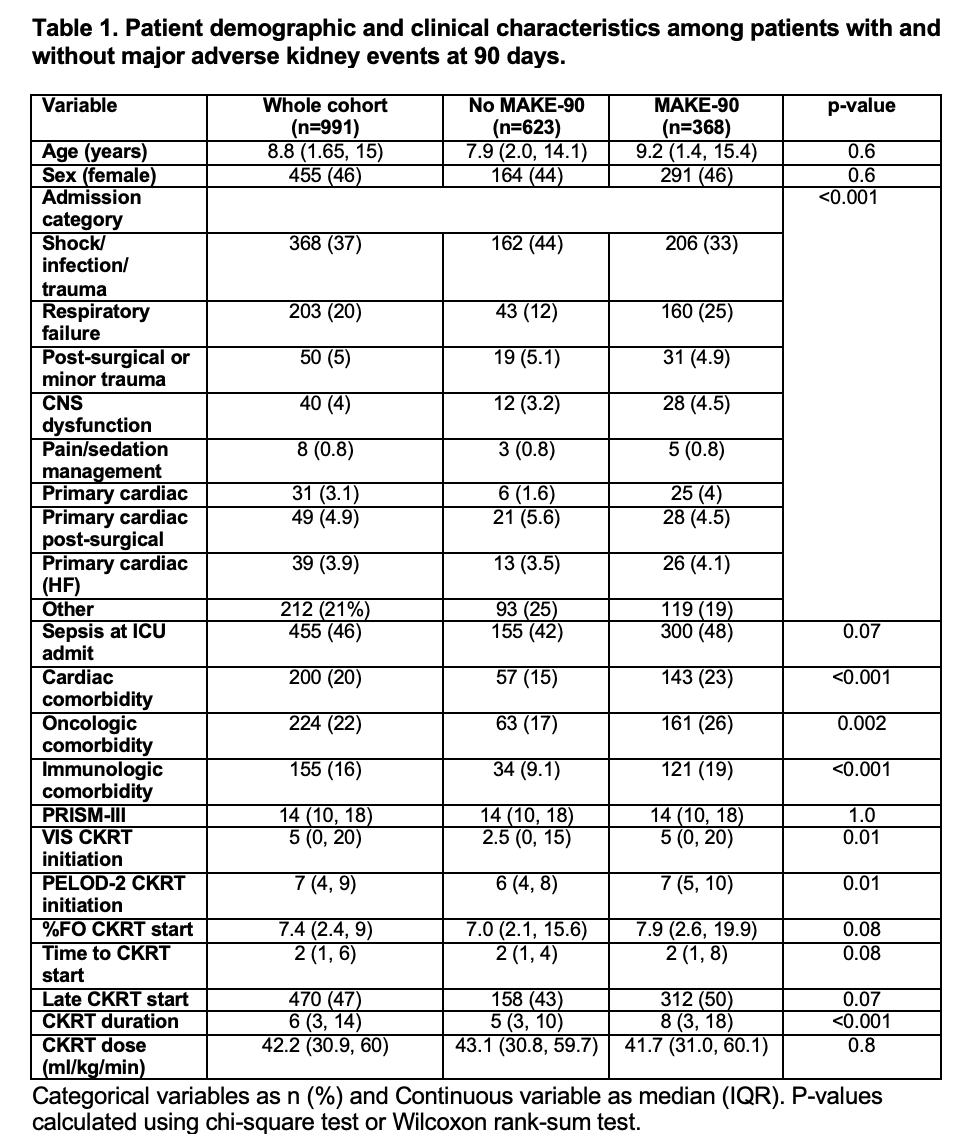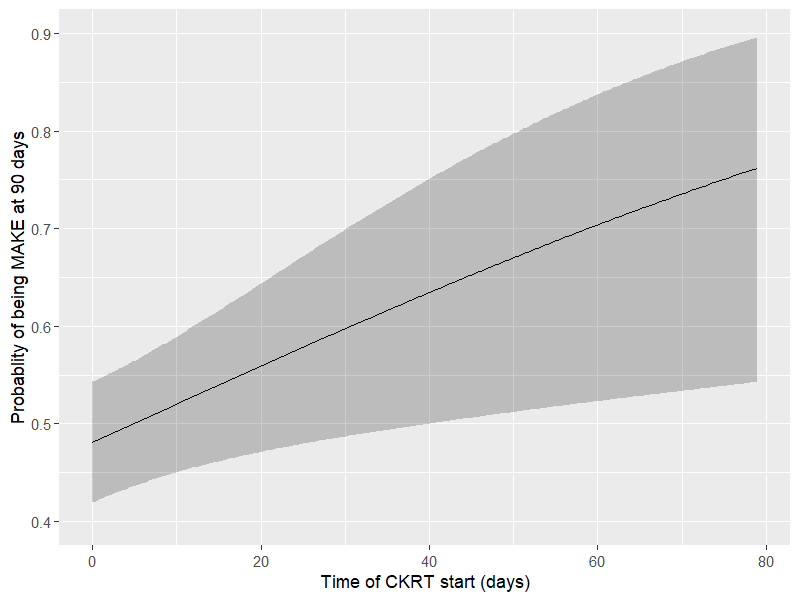Critical Care
Critical Care 1
14 - Timing of Continuous Kidney Replacement Therapy Initiation and Major Adverse kidney events at 90 days: A retrospective analysis of the WE-ROCK Registry.
Publication Number: 14.107
.jpg)
Katja M. Gist, DO, MSc (she/her/hers)
Associate Professor of Pediatrics
Children's Hospital Medical Center (Cincinnati)
Cincinnati, Ohio, United States
Presenting Author(s)
Background: Acute kidney injury (AKI) and fluid overload (FO) are common in critically ill children. Among adults, early initiation of continuous renal replacement therapy (CRRT) was not associated with a reduction in 90-day mortality.
Objective: Evaluate the association of early (≤48 hours) vs. late CRRT start ( >48 hours) from ICU admission with major adverse kidney events at 90 days (MAKE-90).
Design/Methods:
The WE-ROCK study is an international, multicenter study (32 centers, 7 nations) of patients aged 0-25 years treated with CRRT for AKI or FO. Patients with end stage kidney disease, congenital anomalies of the kidney and urinary tract perceived to require long-term CRRT, concurrent use of extracorporeal membrane oxygenation, and use of peritoneal dialysis prior to CRRT were excluded. The primary outcome was MAKE-90 (defined as dialysis dependence, death, persistent kidney dysfunction >25% above baseline). Secondary outcomes were ICU Length of stay (LOS) and duration of mechanical ventilation (MV). Odds ratio (OR) and 95% confidence intervals (CI) were obtained by logistic regression accounting for nesting of patients within centers via the Huber–White cluster sandwich estimator of variance.
Results:
1000 patients were included. The median time to CRRT initiation in the entire cohort was 2 days (IQR: 1,6 days). CRRT was started >48h in 470 (47%). MAKE-90 occurred in 628 (63%) of which 50% (n=312) had late CRRT start. Admission diagnoses and comorbid conditions were different between groups. %FO at CRRT was greater among those with late CRRT start (p< 0.001) but not MAKE-90. The proportion of patients with late CRRT start was not different between those with and without MAKE-90 (p=0.07). LOS and MV duration were significantly longer among those with late CRRT start (Table1). Later time to CRRT start was associated with a higher adjusted odds of MAKE-90 (interquartile OR=1.08, 95% CI=1.02-1.15) (Table 2). Longer time to CRRT start was associated with an increased probability of developing MAKE-90 (Figure).
Conclusion(s): Late CRRT start was associated with MAKE-90. A randomized comparative effectiveness trial in children is necessary to evaluate whether timing of CRRT start impacts outcomes. 

.jpg)
